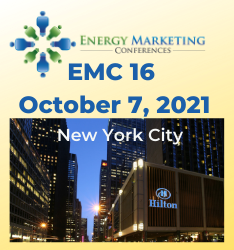|
|
|
|
|
Court Upholds Decision That Prohibits Retail Suppliers From Using Term "Renewable Energy" In Marketing REC Products; Term Limited To Using Supply From Owned Generation Or PPA
The following story is brought free of charge to readers by EC Infosystems, the exclusive EDI provider of EnergyChoiceMatters.com
The Connecticut Superior Court for the judicial district of New Britain has affirmed a Connecticut PURA decision which, among other things, limits voluntary renewable electricity supply offers (VRO) from retail electric suppliers to using only RECs sourced from certain RTOs and which meet certain definitions, and which prohibits the use of the term "renewable energy" to market a REC product
See specific details of PURA's prior decision, which had been first reported by EnergyChoiceMatters.com, here
Several retail suppliers had appealed the decision on various grounds
Regarding the new restrictions on REC geography and type, the Court found that, "PURA's statutory authority to impose the Geographic and Resource Type restrictions
does not derive solely from General Statutes § 16-245o (h) (5), but rather from its broad
regulatory authority under multiple statutes to take proactive measure to improve the market for
the benefit of the state and its consumers."
"The court agrees with PURA that it has broad authority under a
panoply of statutes to regulate the market for electric generation services, including the authority
to impose the Geographic and Resource Type restrictions," the Court said
Suppliers had argued that the adopted marketing restrictions (such as not being allowed to use the term "renewable energy" for REC products) violate the free speech protections of both the U.S. Constitution and Connecticut Constitution
However, the Court ruled that because suppliers did not raise these objections before PURA (failing to exhaust all administrative remedies), they could not be raised on appeal
"For the foregoing reasons, the court concludes that the plaintiffs waived their free speech
objections to the Marketing Restriction by failing to raise those objections in the proceedings
below," the Court said
Suppliers had argued that it is a well-established common-law principle that
administrative agencies lack the authority to determine constitutional questions, and that it would
have been pointless for the plaintiffs to raise all of their constitutional arguments before PURA.
However, citing various cases, the Court found that only a "narrow" exception to the exhaustion requirement exists for certain types of constitutional claims. "It is not a broad proscription against the legal authority of
administrative agencies to consider any and all constitutional arguments and objections," the Court said
The Court opined that, "When an administrative agency opens a contested case docket for the purpose of
developing a regulatory program, and when the agency then solicits comments on proposed
program requirements, it does so because it wants to know all of the reasons why the proposed
requirement may be problematic. An argument that a proposed requirement raises serious
constitutional concerns may well persuade the agency not to adopt the requirement. Or the
constitutional objection may persuade the agency to modify the proposed requirement in a way
that eliminates, or at least reduces, potential constitutional friction. It is precisely for these
reasons that it is not futile for a party to assert a constitutional objection to a proposed regulatory
requirement, even if the agency does not have the legal authority to decide the constitutional
question in a way that binds the parties."
The Court found that the geographic restriction does not violate the dormant Commerce Clause of the U.S. Constitution
The Court cited precedent which has recognized legitimate state pursuit of health and safety interests as compatible with the
Commerce Clause, "which was never intended to cut the States off from legislating on all subjects
relating to the health, life, and safety of their citizens, even if that legislation might indirectly
affect the commerce of the country."
The Court agreed that, "not all RECs are identical; from Connecticut's perspective, RECs minted by NEPOOL-GIS,
NYGATS and PJM-GATS differ from those created in far flung regions because they
displace fossil fuel generation with a more direct effect on Connecticut's environment."
The Court also found that, "eliminating the differential treatment of RECs based on their geographic source
would be inadequate to serve Connecticut's VRO program goals. Connecticut imposed
geographic restrictions in the RPS program because the state's need for a more diverse supply of
renewable energy would not be served by RECs tied to power generation facilities that could not
transmit their electricity to Connecticut."
"Connecticut seeks to incentivize the development of renewable energy
sources in geographic areas that have a more direct impact on the state's environmental goals," the Court said
The Court denied due process claims from suppliers, and was not persuaded that PURA violated any procedural requirements
during the proceedings or when it relied on certain materials in its decision
The Court found that PURA's decision was not arbitrary, capricious, and characterized by abuse of discretion
The Court found that substantial evidence supports the challenged factual findings in PURA's decision
The case was Docket HHB-CV21-6063122-S
In light of the Court's decision, PURA Staff (EOE) requested that PURA issue new compliance deadlines as follows (Docket 16-12-29). Compliance deadlines had previously been stayed. Below are the original deadlines and new Staff recommendations:
Order No. 1: On or before October 15, annually, or at the same time as RPS compliance is due, REC-only suppliers must submit a summary of their annual program participation as discussed in Section II.B., herein.
• Recommendation: EOE recommends the Rec-Only Suppliers should file the first report by October 15, 2021.
Order No. 9: Beginning with the 2020 RPS compliance, any supplier marketing a VRO will be required to include the following as separate information to support its VRO load and REC settlement compliance as discussed in Section II.C: third party verification/attestation of its VRO load; third party verification/attestation that the appropriate RECs were settled; copies of the VRO Disclosure Label(s).
• Recommendation: EOE recommends the Order should be changed to "Beginning with the 2021 RPS compliance . . ." and suppliers should be required to file this information in the 2021 RPS compliance docket.
Order No. 10: On or before December 1, 2020, the Disclosure Label Working Group shall submit its final recommendations to the Authority for approval.
• Recommendation: EOE recommends the Order should be changed to, "On or before October 1, 2021, the Disclosure Label Working Group shall submit its final recommendations to the Authority for approval."
Page 25: Effective January 1, 2021 all new and renewing VROs must comply with the new standards.
• Recommendation: EOE recommends that the Authority should change this to, "Effective October 1, 2021 all new and renewing VROs must comply with the new standards."
Page 26: The Authority will require the Disclosure Label Working Group to submit a proposed Disclosure Label by December 1, 2020, for Authority approval.
• Recommendation: EOE recommends that the Authority should change this to, "The Authority will require the Disclosure Label Working Group to submit a proposed Disclosure Label by October 1, 2021, for Authority approval."
ADVERTISEMENT Copyright 2010-21 Energy Choice Matters. If you wish to share this story, please
email or post the website link; unauthorized copying, retransmission, or republication
prohibited.
Court Affirms Geographic Limit For Source Of RECs For Voluntary Renewable Offerings
Staff Proposes New Compliance Deadlines In Light Of Court Order (Compliance Had Been Stayed)
August 2, 2021
Email This Story
Copyright 2010-21 EnergyChoiceMatters.com
Reporting by Paul Ring • ring@energychoicematters.com
NEW Jobs on RetailEnergyJobs.com:
• NEW! -- Senior Account Operations Analyst -- Retail Supplier
• NEW! -- Energy Procurement Manager
• NEW! -- Natural Gas Retail Analyst -- Retail Supplier -- Houston
• NEW! -- Associate Director of Market Strategy -- New York/Anywhere
• NEW! -- Energy Risk Professional -- Retail Supplier -- Houston
• NEW! -- Energy Customer Support Specialist -- Retail Supplier -- Houston
• NEW! -- Business Development Account Executive - Indirect Broker Sales -- Retail Supplier -- Houston
• NEW! -- Customer Engagement Manager -- Retail Supplier -- Houston
• NEW! -- Energy Customer Service Specialist
• NEW! -- Energy Sales Executive
• NEW! -- Senior Energy Intelligence Analyst
• NEW! -- Energy Advisor
|
|
|
|









